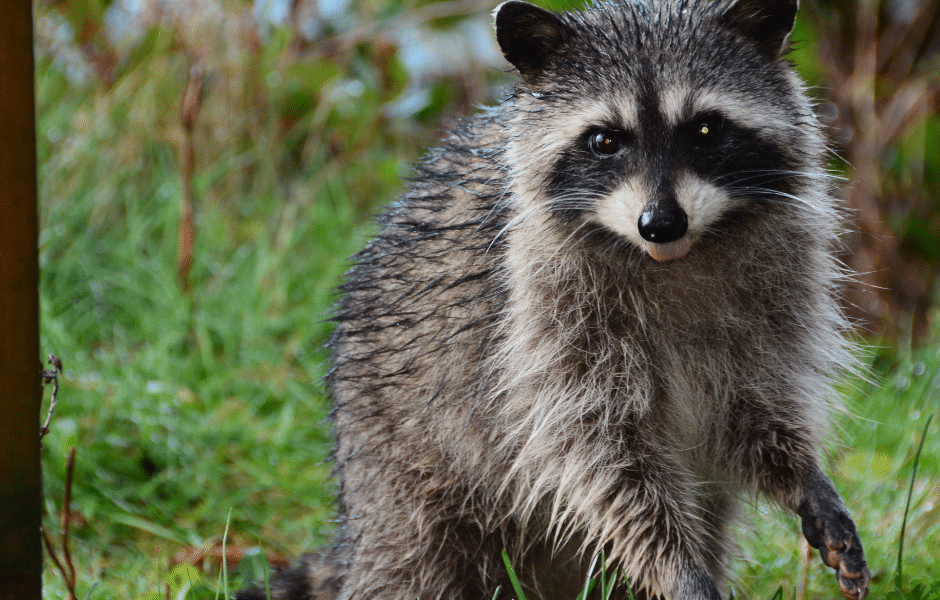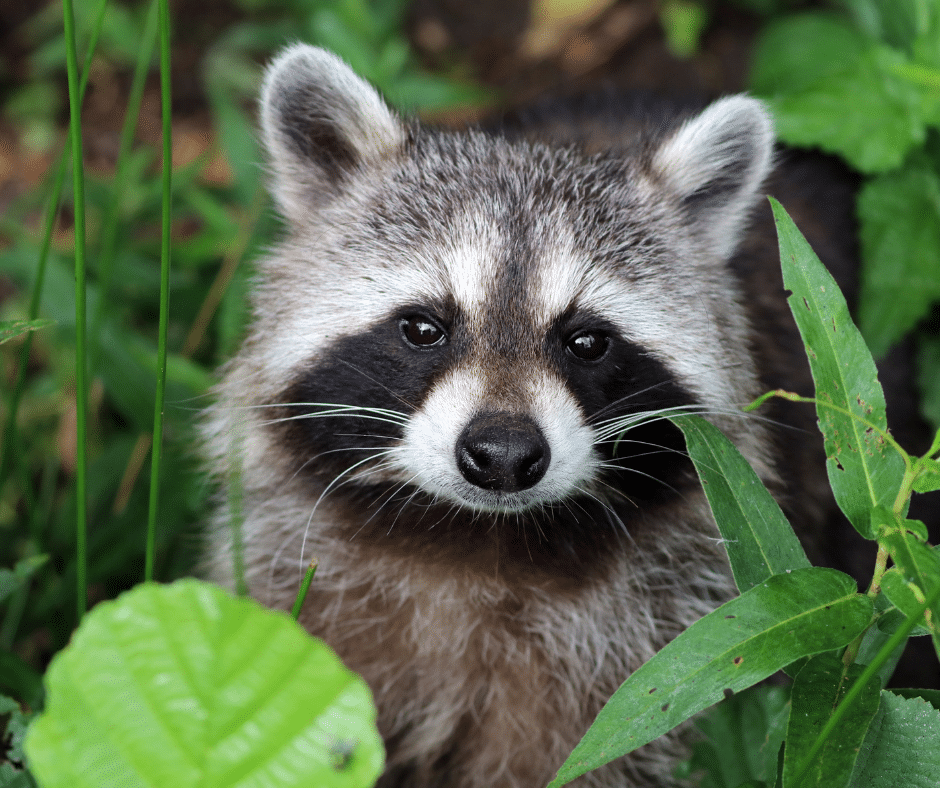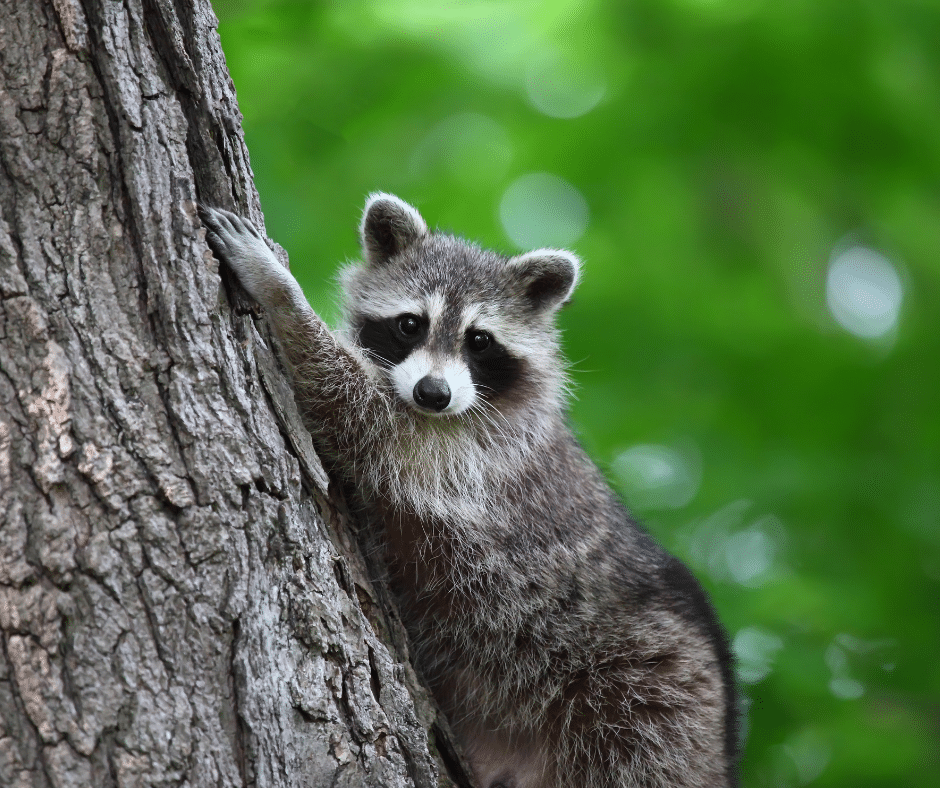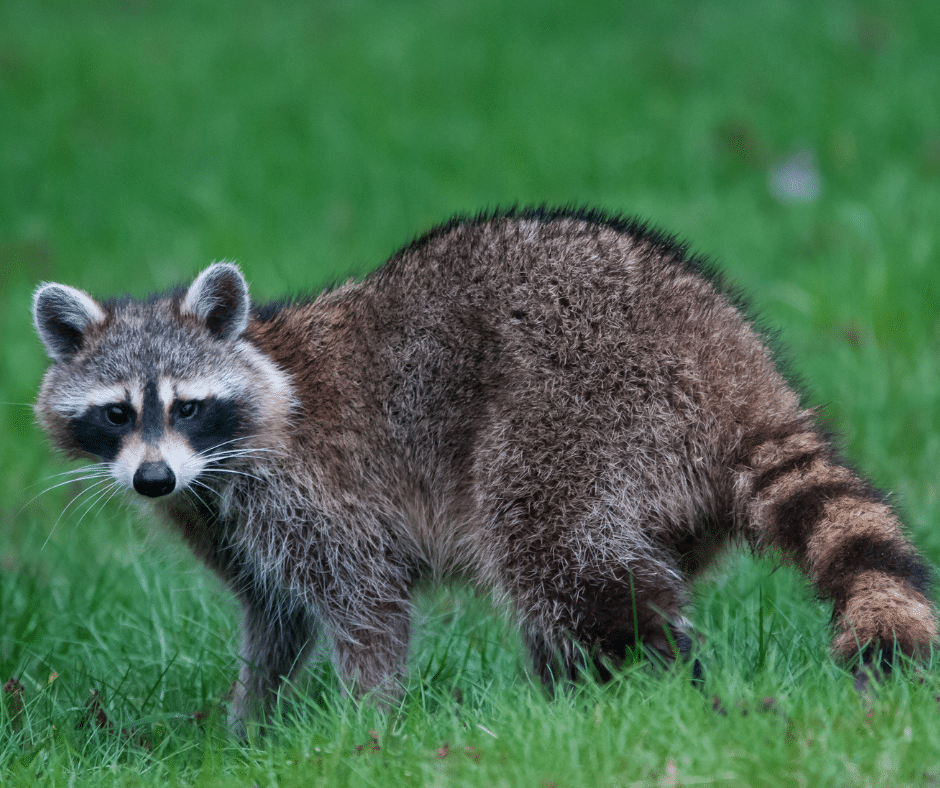
The raccoon is a fascinating animal. First, they are super cute. You cannot beat that look with the mask and the tiny hands. Raccoons are also intelligent and face very few threats in the wild. Also, they are entertaining to watch if you can catch them up to their mischief. That said, there are fun facts about raccoons, and there are downright awful things about them too.
This article focuses on the fun facts about raccoons rather than the bad. But if you have a raccoon issue on your property, please do not hesitate to call World Class Wildlife to remove the animals and the mess they leave behind.
Let’s get started learning some of the things we love about raccoons.
12 Fun Facts About Racoons
1 | Raccoon have very high IQs: Shockingly, Humans have the highest IQ followed by monkeys and then the raccoon! What’s more, they evolve their intelligence and ways of thinking as they learn. Not only are they smart, but they are stubborn and strong-willed to boot.
Fun Story: According to Treehugger.com,
“In a 2017 study published in the journal Animal Cognition, researchers assessed eight captive raccoons for causal understanding. The raccoons were shown a cylinder filled with water containing a marshmallow that was too low to grasp. Then, the researchers demonstrated that if they dropped pebbles into the cylinder, the water level would rise so that the treat was within the raccoons’ grasp. Two raccoons learned how to drop stones to get the treat. A third found an even easier way: she tipped over the tube to access the marshmallow more quickly.”
2 | They make more than 200 noises: These animals communicate through sounds and 12-15 distinct calls. They will hiss, growl, purr, chirp, and squeal to get their point across.
3 | They are very handy: Well, that is a play on words. But they can use those little hands to do almost anything they need to do. They have extra sensitive paws made of 5 opposable appendages, just like the human hand. That makes them able to grasp and open just about anything they want.
4 | Raccoons are fast: Yes, they are extremely fast. They can run up to 15mph even when climbing. And they can climb 35 to 40 meters to escape danger and locate food.
5 | They are nocturnal: Up at night and asleep in the day, it can be challenging to catch a raccoon in the act of its thievery.
6 | Racoons can be trained: Circus raccoon, anyone? Raccoons can be trained to mirror skills like dancing and clapping. Not quite a circus act, but impressive nonetheless.

7 | They are resilient and can live almost anywhere: Raccoons are not particular about where they live if there is water nearby. Their dens are made in rock crevices, hollow trees, and ground. But in urban areas, you may catch raccoons nesting in attics, chimneys, and the crawlspaces underneath houses. And that is where they can be a really messy problem.
8 | Raccoons are promiscuous: What? Well, they indeed do not mate for life like the wolves, beavers, and others. But let’s clarify. The females choose to mate with one partner during a mating season. But the males will mate with any female that allows them.
Responsibility? The male raccoons have nothing to do with raining the babies. The sole responsibility lies with the females.
9 | They are city animals: Yes, the raccoon loves the city, and why wouldn’t they? Big cities provide the critters with plenty of places to scavenge and plenty of food sources. So, if you lie in a city, keep your trash cans tightly closed and latched.
10 | They are opportunistic eaters: As omnivores, raccoons will eat just about anything. That may include but is not limited to a variety of nuts, berries, acorns, mice, fish, insects, birds and eggs, and more. Not to mention, they will eat anything left behind by humans. Raccoons will rummage through your trash, looking for leftovers.
True Story: Raccoons can open zippers and fridges too. Once a camper was in a park with a zippered screen tent and a mini-fridge inside. The sneaky raccoons broke in in the night and ate the entire contents of the fridge. (True story)
11 | And they are clean animals – kind of: Watching raccoons eat is fascinating. It appears they wash their food before they eat it. Treehugger.com reports it in this way:
“Wildlife biologists believe that raccoons have very sensitive nerves on the fingers of their front paws. When they are foraging for food in water, they are feeling around with their paws to gather sensory information. In a study of 136 raccoons, researchers in Nova Scotia found that wetting the skin helped increase the responsiveness of those nerves. But even when there’s no water around, the dunking ritual helps them grip their food and get it to their mouths.”
Interestingly, the raccoon’s Latin name is the lotor, which means “the washerman.”
12 | Their masks serve a purpose: Other than looking like the mask of a bandit (they do love to steal), the raccoon’s mask is there for a reason. The truth is that the masks are an anti-glare device and help with their night vision.

Raccoons Are Not All Fun, Though
Raccoons are wild animals, and although you see them around homes, they are not domesticated creatures. Trust us when we say you want to keep raccoons away from your house in Florida or any state. You see, raccoons have strong claws, sharp teeth, and are pretty aggressive.
When a homeowner thinks they can quickly get rid of a raccoon family once it’s nested in their attic or chimney, trouble will ensue.
Some methods will deter a family from handing around. For example: playing loud music where you think they are gathering—raccoons like a peaceful and quiet environment. So, playing loud music can help make the raccoons leave.
However, DIY methods have their drawbacks. The raccoons may run further into your house, or the neighbors could grumble about the loud music at all hours.
Try the following methods to cut down on raccoon attractors.
- Put away all pet food and keep it in airtight containers.
- Eliminate or lock pet doors.
- Seal trash cans. Try a strong bungee cord.
- Keep all siding and gutters intact and without holes.
- Keep lawns and yard debris clean.
Also, there are some commercially offered repellents; however, none are exceptionally reliable.
World Class Wildlife Removal has a handle on raccoon removal. We are trained professionals who have been in the market for many years. Keep reading for more about getting rid of raccoons and getting on with your life.
Avoid These Ways for Removing Raccoons on Your Property
Mothballs as a repellent is never ever a good idea. Mothballs are a registered pesticide, and using them to get
rid of raccoons goes against its label instructions. This can lead to direct poisonous exposure to your family and pets and, in most cases, is ineffective anyway.
Movement-triggered lights, sprinklers, and other devices have restricted effectiveness, and most “motivated” raccoons will remain undeterred. If raccoons are entering
through your attic or chimney, they should be removed by a professional. Then all holes and vulnerable points should be secured with sheet metal or hardware fabric and proper screws or nails.

Keep Raccoons Away with World Class Wildlife Removal
Remediation and tidying up from damage by raccoons such as urine, feces, chewed wires, and harmed insulation in attics and crawl spaces can be pretty expensive. The cost could rise well into the thousands of dollars if the damage is comprehensive. In some cases, the property owner’s insurance will cover some of the damage done by raccoons but not all.
The most cost-effective way to keep raccoons away is never to let them get in. Our team of professionals will make sure all your damage is cleaned up and sealed up, not leaving you with the mess to clean up after.
World Class Wildlife Removal offers expert wildlife removal services, including raccoons, in Tampa, Clearwater, Largo, and everywhere in between.
Contact World Class Wildlife Removal today for any raccoon removal needs.
